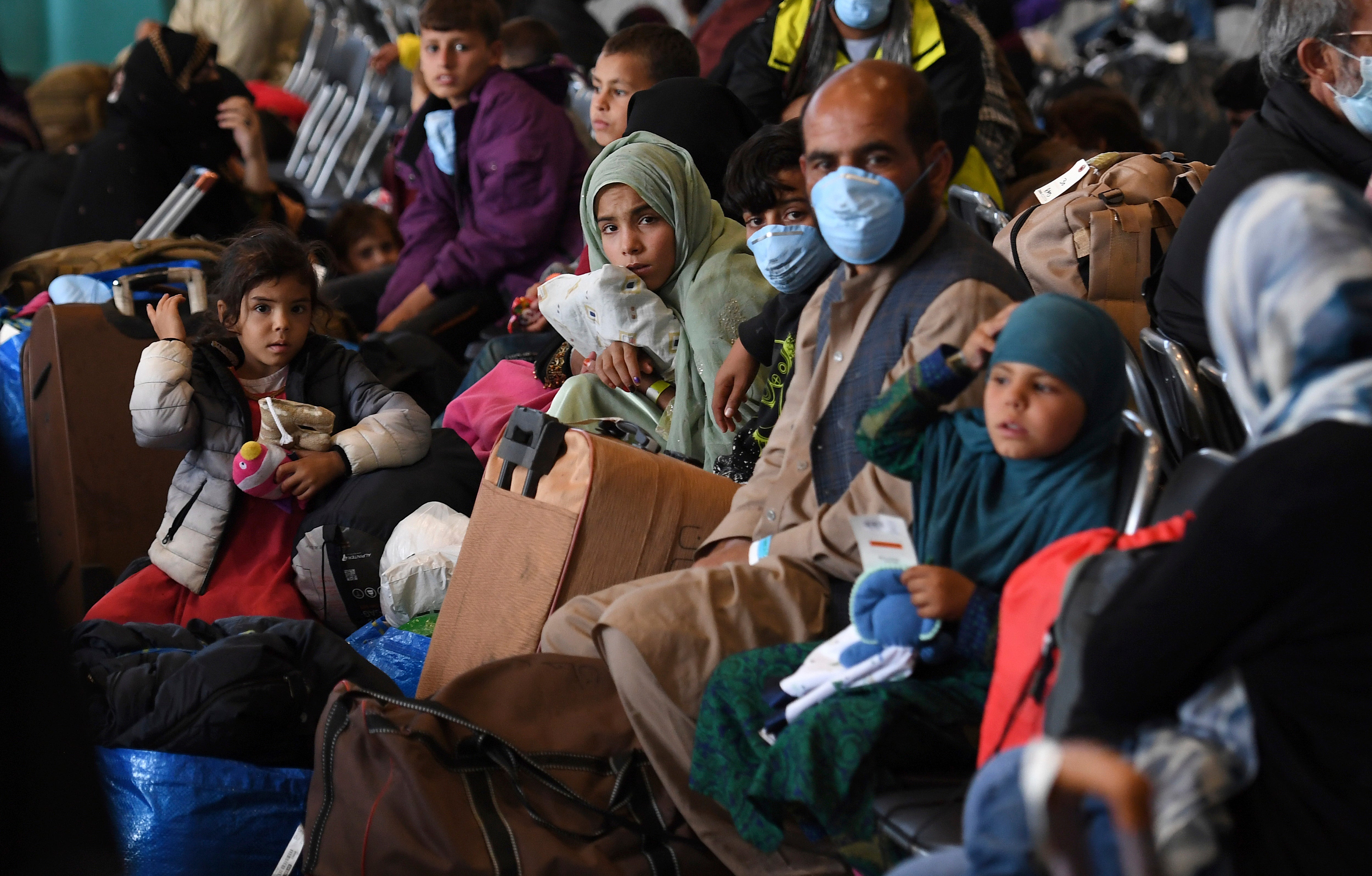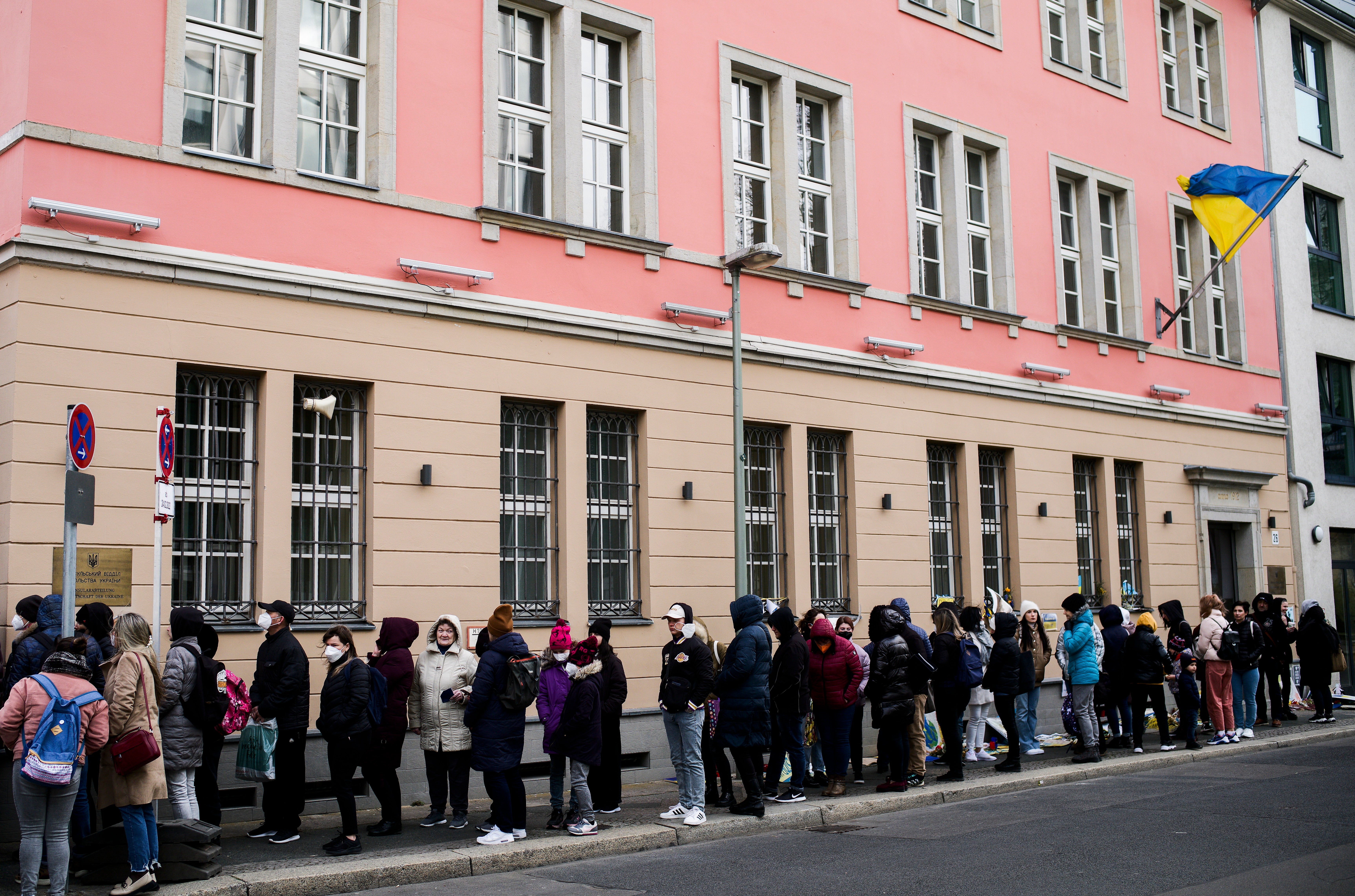
Germany has displaced Afghan refugees from government accommodation to make way for Ukrainians fleeing Russia’s invasion, according to reports.
Hundreds of Afghan families are being evicted in Berlin to create space for incoming refugees fleeing Ukraine, Foreign Policy reported. The German government justified it by saying that Afghans were being removed from “arrival centres” designed for short term stays.
However, activists said that some refugees had been evicted from the accommodation they had lived in for years.
“The evictions purposefully weren’t publicised,” said Tareq Alaows, a board member of the Berlin Refugee Council.
“Some people had lived in their homes for years and were ripped out of their social structures, including children who were moved to locations far from their respective schools.”
“Few people’s living conditions improved, but most were afraid to speak up, afraid it could impact their immigration status,” Mr Alaows told Foreign Policy, explaining that around 10 residences had been emptied in Berlin.
Berlin’s senate department for integration, labour and social services, which oversees the housing of refugees, said that the decision was “based on operationally necessary and difficult considerations” and that there was no alternative because Ukrainians, including many women with children, needed a roof over their heads and a bed.

“We regret that this caused additional hardships to the Afghan families [and that] the affected people had to move out of their familiar surroundings and now possibly have to keep up with their social connections with great difficulty,” said Stefan Strauss, the department’s press secretary.
Mr Strauss said Berlin had a total of 83 different accommodations for refugees, already housing some 22,000 people, but that arriving Ukrainians needed to be consolidated to a few defined arrival centers to simplify processing. Evicted Afghans were given other “permanent” accommodation of equivalent quality, excluding shared bathrooms and kitchens, he added.
Mr Alaows of the Berlin Refugee Council said that although the fault is not with the Ukrainian refugees, there was a difference between how they have been treated compared to Afghans fleeing home.

“The last months showed that different treatment of refugees is possible, and this needs to be systematically anchored in our society,” Mr Alaows said.
More than 160,000 Ukrainian refugees have been officially registered in Germany, but their real numbers are thought to be much higher as Ukrainians can enter Germany without visas and there are no thorough controls along the Polish-German border.
Berlin has become the main gateway for tens of thousands of refugees, with around 7,500 arriving at the train station every day after the invasion began on 24 February. Because city officials were initially slow to react to the massive influx, thousands of volunteers have stepped up to help cater to refugees.
In the last 10 years, around 630,000 Afghans applied for asylum in EU countries with some of the highest figures in Germany, while in 2015 the nation agreed to take in 500,000 Syrian refugees a year.
The Independent has approached the German interior office for further comment.






